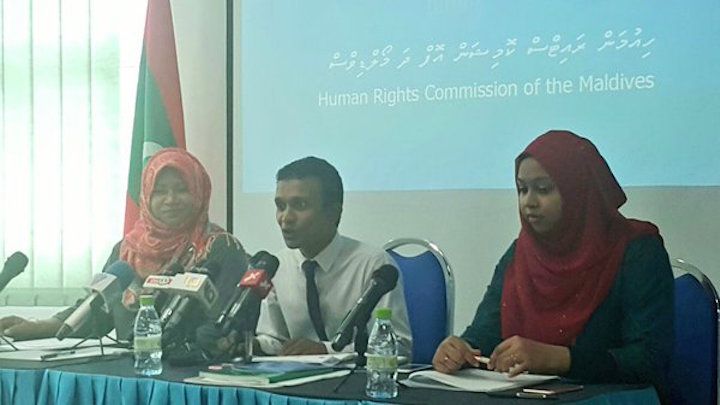Human rights watchdog defends restrictions imposed by Supreme Court
An 11-point guideline imposed by the Supreme Court on the state human rights watchdog has not hampered its functioning, Shifaq Mufeed, vice president of the Human Rights Commission of Maldives, told the press yesterday.

28 Mar 2016, 09:00
An 11-point guideline imposed by the Supreme Court on the human rights watchdog has not hampered its functioning, Shifaq Mufeed, vice president of the Human Rights Commission of Maldives, told the press yesterday.
The Supreme Court issued the legally binding guidelines in June 2015 after initiating criminal proceedings against HRCM members over a rights assessment report submitted to the UN Human Rights Council.
The guidelines, which barred the independent body from communicating with foreign organisations without government oversight, drew widespread condemnation from UN rights experts, the main opposition Maldivian Democratic Party, and civil society groups.
But Mufeed – a former ruling party MP appointed to the commission in August last year – said the guidelines do not obstruct the commission’s work, characterising it as a reminder for the HRCM to remain within legal bounds.
Become a member
Get full access to our archive and personalise your experience.
Already a member?
Discussion
No comments yet. Be the first to share your thoughts!
No comments yet. Be the first to join the conversation!
Join the Conversation
Sign in to share your thoughts under an alias and take part in the discussion. Independent journalism thrives on open, respectful debate — your voice matters.




